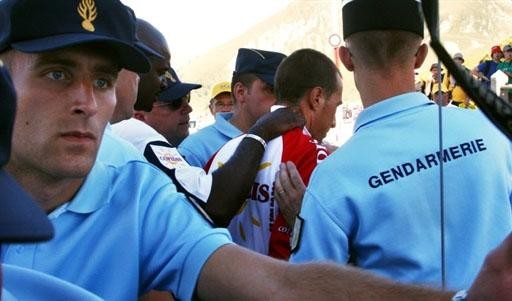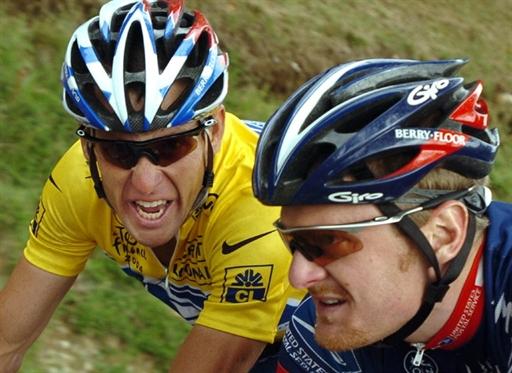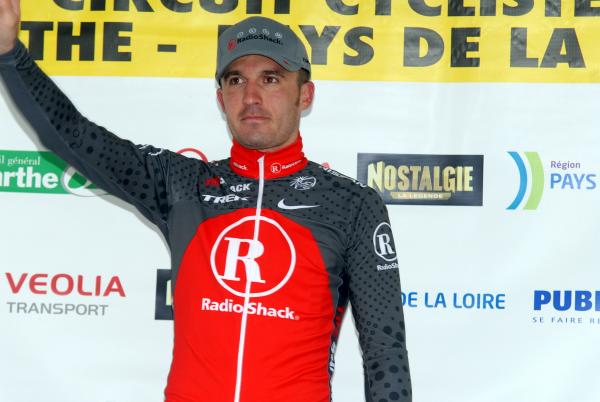Doping investigators join forces with Interpol and AFLD following meeting in Lyon
French police talking to Novitzky today



The fight against doping in cycling has taken an international and unified approach with police and investigators from the USA, France, Spain and Italy meeting in Lyon to join forces and share information according to a report in Wednesday’s Gazzetta dello Sport.
The Italian newspaper suggests police first met at Interpol headquarters in Lyon at the end of July.
U.S. Food and Drug Administration Agent Jeff Novitzky, Federal prosecutor Doug Miller and U.S. Anti-Doping Agency CEO Travis Tygart are reported to be back in Lyon this week as they continue to investigate accusations.
According to Equipe, they questioned staff from the Agence Française de Lutte Contre le Dopage (AFLD), including former president Pierre Bordry and the head of the Châtenay-Malabry Françoise Lasne.
Equipe reports on its website that the US investigators are today talking to French police about their investigation into the Astana team during the 2009 Tour de France, when Lance Armstrong and Alberto Contador rode together.
Police discovered syringes of various dimensions, a blood perfusion kit and anti-hypertensives (drugs that reduce high blood pressure). However Equipe suggests the investigation maybe archived despite police questioning team manager Johan Bruyneel, directeur sportif Alain Gallopin and the team’s two doctors.
Gazzetta claims that the US officials met with officers from the Spanish Guardia Civil, French police, and Italian police and customs officers, headed by public prosecutor Benedetto Roberti. He has led all the major doping investigation in Italy for the last two years.
Get The Leadout Newsletter
The latest race content, interviews, features, reviews and expert buying guides, direct to your inbox!
The American investigators are reported to have asked each of the police forces to supply information and evidence that can help their case against Lance Armstrong. The French have opened various investigations in the past and the AFLD is ready to provide details about urine samples taken from Armstrong in 1999 and tested as part of a research project.
The work is being coordinated by Interpol because its international ability to reach across international legal borders and secure evidence from one country for use in another.
The Spanish are reported to be investigating claims by Floyd Landis that Lance Armstrong kept bags of blood in a fridge in Girona and are investigating why so many riders and well known sports doctors were based in Monte Teide on the island of Tenerife. Armstrong has also denied Landis' allegations.
The Italians are involved because of their years of experience of fighting doping and for their success in pursuing Alejandro Valverde and other riders involved in Operacion Puerto. They are also investigating the supply of doping products from Balkans into Northern Italy.
The US investigation into Lance Armstrong has apparently stepped up a level after last week’s search of Yaroslav Popovych’s house in Tuscany. The police took away his computers, mobile phone and contact book. These may provide useful information.
Monte Teide suddenly out of fashion
Gazzetta suggests that the combined investigation has sparked some riders to change mobile telephone numbers in recent months and lead to teams changing the location of their training camps.
Monte Teide on Tenerife, where several teams and groups have riders have spent long spells in the past, has suddenly gone out of fashion because it is now strictly controlled. Mount Etna in Sicily was being considered as an alternative but some riders and coaches are set to return to Namibia and South Africa, which was used in the early nineties.
Gazzetta ends its article with a provocative final line: ‘The second half of the big match is about to start.’

Stephen is one of the most experienced member of the Cyclingnews team, having reported on professional cycling since 1994. He has been Head of News at Cyclingnews since 2022, before which he held the position of European editor since 2012 and previously worked for Reuters, Shift Active Media, and CyclingWeekly, among other publications.